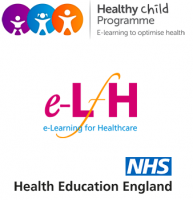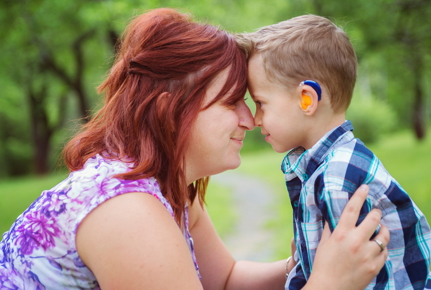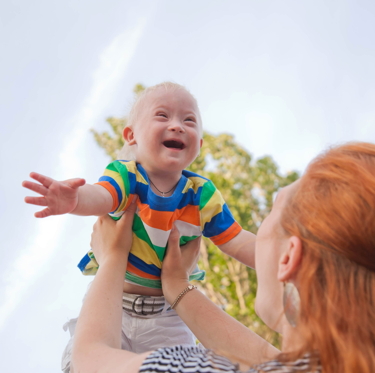General Principles course



This session is designed to build on the other Early Developmental Support sessions. It provides a learning foundation for practitioners who are seeking to better understand or undertake a planned clinical support programme with babies and young children with developmental needs and disability and their parents. It supports the use of the Developmental Journals.
Learning objectives
By the end of this session you will be able to:
- Outline how early development processes in babies and young children with developmental needs relate to their disability and the importance of early developmental support and promotion
- Explain vulnerable areas of development in children with disability-related developmental needs
- Describe the principles that promote developmental progress in the young child with developmental needs and disability
- Describe areas of vulnerability and concern, such as signs of possible intellectual or motor disability, or autism spectrum disorder and the appropriate response
- Consider how a service framework should best deliver early support to babies and young children with developmental needs and their parents
Many of the natural ways that parents respond to their baby and young child will still be able to assist their development. Parents may also need guidance to adapt their behaviour to better support their child’s step-by-step learning and progress and to ensure the best possible quality of life.
Before commencing this session you should complete the following HCP sessions:
- Supporting Children's and Young People's Development (402-0076)
- An Introduction to Using Early Support Materials in Context (402-0077)
- Introducing and Using a Developmental Journal (402-0078)
Naomi is a consultant clinical psychologist and neuropsychologist who specialises in children with neurodisability and their families. She has worked at Great Ormond Street Hospital for Children for over twenty years as head of neurodisability psychology and joint lead of the Developmental Vision Service and the Neurometabolic Service. In 2004 Naomi jointly led (with Alison Salt) the project to design and write the Developmental Journal for babies and children with visual impairment (VI).
Naomi is also a Reader (Associate Professor) in Paediatric Neurodisability at UCL Great Ormond Street Institute of Child Health. Her research has focused on assessment of and understanding the development and psychological needs of children with VI and she publishes and lectures extensively.
She is Chief Investigator of the UCL/GOSH Developmental Vision research programme including the OPTIMUM study (2011-2016), which has provided unique insights into the development of children with VI and evidence of the effectiveness of the Developmental Journal VI, and the NIHR DAiSY study (2015-2018) which has designed and validated new methods of assessing social communication/ autism in young children with visual impairment.
She is joint author of the Developmental Journal VI modules Part 1 and 2 and the General Developmental Principles.


John Oates FAcSS FRSA HonFBPsS is Professor of Developmental Psychology at The Open University. John’s primary research focus is on social development in early childhood. He led an ESRC-funded longitudinal study of infants with Down syndrome and a Department of Health funded service evaluation of a Family Nurse Partnership pilot programme.
He has also been involved in an NHS trial and implementation of a care pathway scheme for mothers with young babies in a primary care trust, and the adoption of a screening tool he developed in the field of perinatal mental health; a study of health visitor assessments of mother-infant relations funded by the Burdett Nursing Trust; and longitudinal cohort studies of children in Budapest.
He was member of the programme team for Early Support with particular responsibility for developmental journals, and partner in the development of Biztos Kezdet, an EU-funded national programme in Hungary based on Sure Start, for disadvantaged children and families.
With Professor Martin Woodhead, he was director of Early Childhood in Focus, a project funded by the Bernard van Leer Foundation in the Netherlands, producing policy guidance based on early childhood research. He was an academic consultant to the OU/BBC Child of Our Time series 2001-2011, and consultant author for Development Matters in the English Early Years Foundation Stage.
Alison is a specialist in paediatric neurodisability who has been working with children with visual impairment (VI) and their parents for over 20 years. For 15 years she worked at Great Ormond Street Hospital where she was joint lead of the Developmental Vision Service and led the Autism assessment service. She was also lead Consultant paediatrician at Moorfields Eye Hospital.
Alison has specialist expertise in the management of children with visual disorders. In 2004 Alison jointly led (with Naomi Dale) the project to design and write the Developmental Journal for babies and children with VI.
Alison is also an honorary Senior Lecturer, Great Ormond Street Institute of Child Health, UCL and Associate Professor (University of Western Australia). Her research has focused on assessment of vision and understanding the development of children with VI. She was joint lead of The OPTIMUM VI study (2010 – 2016) (Naomi Dale PI) which has provided unique insights into the development of children with VI and evidence of the effectiveness of the Developmental Journal VI. Our most recent research is investigating the development and assessment of social communication skills in young children with VI. (DAiSY).
She is joint author of the module Developmental Journal for Visual Impairment (part 1 and 2).

- End of Life Care | Specialist care | Tracheostomy ...
- Posted By eIntegrity Healthcare e-Learning
- Posted Date: 2025-01-10
- Location:Online
- This session covers basic knowledge required to keep patients safe if they have a tracheostomy and laryngectomy, including:<br><br>• Humidification<br>• Stoma care<br>• Securing the tube<br>• Maintenance: suction, inner tubes and c
- End of Life Care | Specialist care | Palliative ca...
- Posted By eIntegrity Healthcare e-Learning
- Posted Date: 2025-01-10
- Location:Online
- This session will discuss the features of some of the more common neuromuscular disorders, the physical and psychological issues which present with such disorders and the current practice for symptom control in palliative care.
- End of Life Care | Specialist care | Non-invasive ...
- Posted By eIntegrity Healthcare e-Learning
- Posted Date: 2025-01-10
- Location:Online
- Non-invasive ventilation (NIV) is an intervention which can improve both quality of life and survival for patients with motor neurone disease (MND). This session outlines the evidence base and practicalities of this important treatment option for patients
- End of Life Care | Specialist care | Intrathecal d...
- Posted By eIntegrity Healthcare e-Learning
- Posted Date: 2025-01-10
- Location:Online
- This session provides an overview of intrathecal drug delivery (ITDD) for the management of cancer pain. It aims to enhance the understanding of which patients may benefit from this approach and the principles which govern the safe use of ITDD systems. It
- End of Life Care | Specialist care | I'm not lovea...
- Posted By eIntegrity Healthcare e-Learning
- Posted Date: 2025-01-10
- Location:Online
- This session explores the concerns patients and their partners may have about intimacy and sex when approaching the end of life. It examines the challenges this raises for professionals and how most effectively to approach the topic. This session was revi








